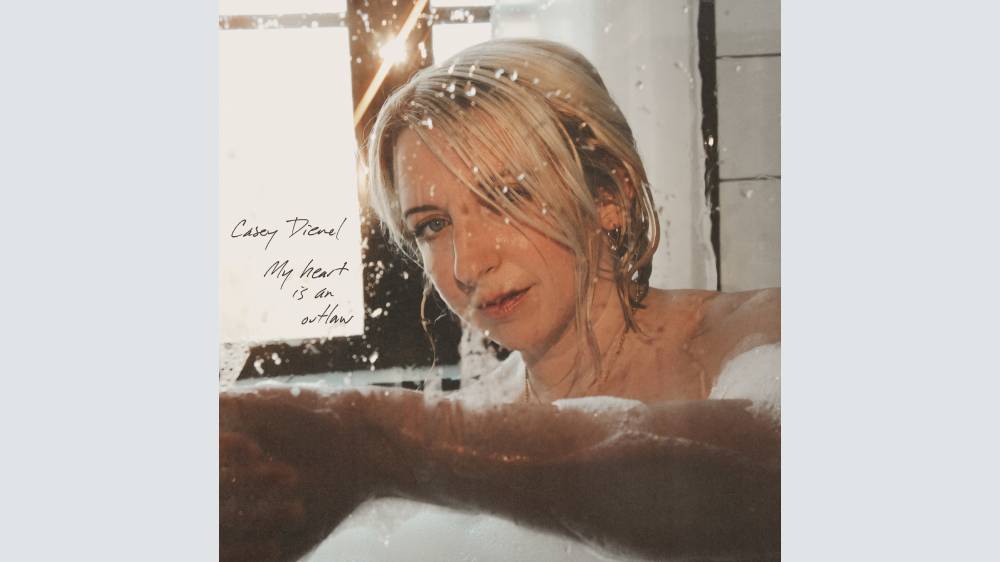Casey Dienel has been in the game for a minute: Their first album, 2006’s “Wind-Up Canary,” was the work of a promising 21-year-old classically trained singer-songwriter with a foundation in piano-based pop, but also a strong adventurous streak. In the years since, they’ve delved deeply into more experimental work, both under their own name and the (since-retired) White Hinterland monicker.
Yet there’s little in their catalog to foreshadow the kind of fully-evolved, Carole King “Tapestry”/ Fleetwood Mac-esque pop on display in their first album in eight years, “My Heart Is an Outlaw,” which is far more approachable and conventional (in a good way) than their previous albums.
The album’s lyrics are filled with themes of change, growth and transformation, and Dienel says in the press materials that the hiatus enabled them to “revert to being a fan again — I went back and listened to my favorite records and I returned to songwriting the way I did as a child, just me and the piano.” And although songs like the opening “People Can Change” and the effervescent “Seventeen” have a breezy pop air, their previous work definitely informs this album, particularly in the ambitiously multitracked vocals and occasionally unconventional melodies, which are all the more striking when accompanied by a relatively conventional, piano-driven rock backing. Yet it also goes dark on occasion: “Turncoats” begins with just their voice over an ominous beat before the arrangement fills out, and “Your Girl’s Upstairs” is driven by a skronking electric guitar.
Dienel is a remarkably versatile singer, and many of the lead vocals on this album are in an alto range reminiscent of Danielle Haim (it’s not hard to imagine this album getting a big “RIYL” thumbs-up from Haim fans), but their higher range gets a workout as well. There are also occasional flashes of Sharon Van Etten’s early 2010s albums, and producer Adam Schatz (of Landlady, who has also worked with Japanese Breakfast and Neko Case) has created a perfect setting for the songs that evokes the ’70s influences without being overly reverential.
But this is Dienel’s show all the way: The years of experience and experimentation have led to a beautifully seasoned album that is by far their most immediate and dare we say mature work to date.

